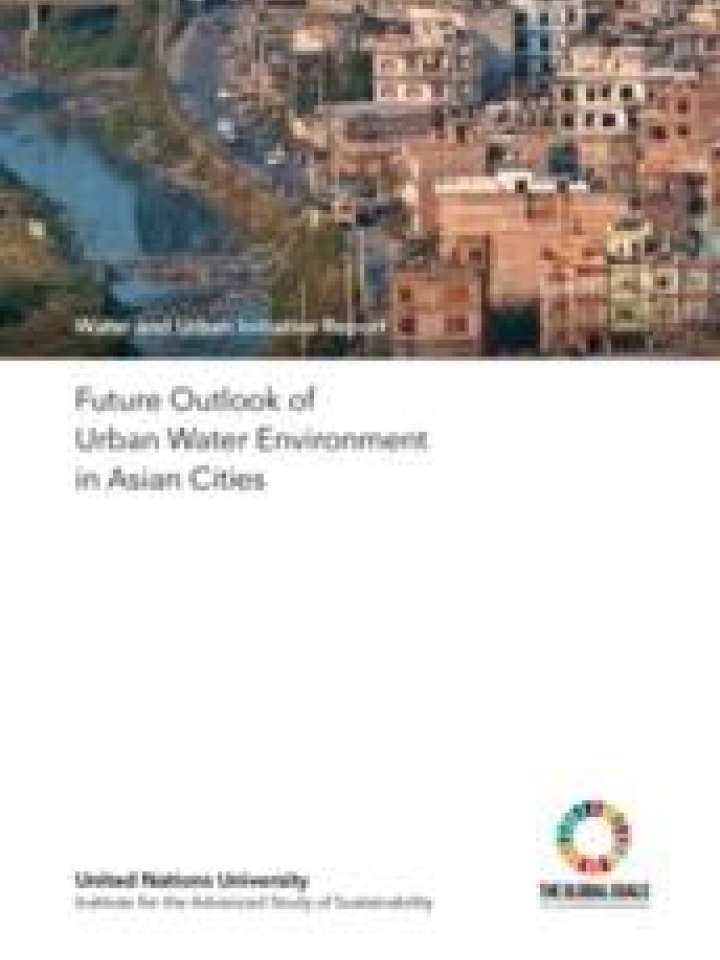Future outlook of urban water environment in Asian cities
To enhance the capacity of local governments and to increase the understanding of the latest urban water management techniques, the United Nations University Institute for the Advanced Study of Sustainability initiated a four year project, the Water and Urban Initiative (WUI). This project aims to contribute to sustainable urban development by creating scientific tools to forecast the future state of urban water environments. The WUI also seeks to contribute to capacity development aimed at improving urban water environments in developing countries in Asia by focusing on population growth, urbanization, and low-carbon measures.
The research findings generated through the interdisciplinary approach of the WUI will fill an important gap in the understanding of urban water environments globally and contribute to improved policymaking in this key area. The purpose of this report is to highlight several cities in Asia where the WUI has applied an integrated analysis framework to address and promote sustainable urban water management. Eight cities - Hanoi, Jakarta, Manila, Chennai, Lucknow, Medan, Kathmandu, and Nanjing - were chosen from a long list of developing urban areas in Asia to provide a range of geographical, cultural, economic, and hydrological contexts. The main dimensions of the interdisciplinary approach for addressing issues confronting Asian cities and, consequently, those of the initiated research program can be outlined as follows:
- Flood risk prevention, management and assessment
- Water quality assessment
- Water-related health risk assessment
- Economic evaluation of water quality improvement.
Systems analysis comprises the core of the research. The analysis aims to integrate outcomes from different components and analyze the results with respect to a comprehensive set of goals and objectives. The work also includes studies of technical models and future scenarios affecting water infrastructure in cities, as well as analyses of people's perceptions on water-related issues and willingness to improve the situation.
The report's case studies highlight a number of results, lessons, and practical recommendations that are important for successfully implementing future sustainable water management strategies and improving decision-making processes in water-related sectors in those countries.
Explore further
